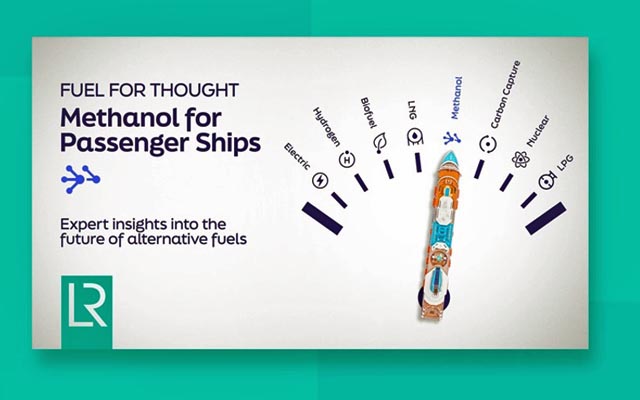A new report from Lloyd’s Register (LR) has found that the total cost of ownership (TCO) for passenger ships retrofitted with methanol dual-fuel engines to be more than double the cost of blended fuel (Blend B30), HFO and HFO with Onboard Carbon Capture and Storage technologies (OCCS).
The study, entitled Fuel for thought: Methanol for Passenger Ships, examined the TCO for operators over a 15-year period and based results on a calculation that 65% of voyage time would be spent in EU waters.
Overall findings identified in the report, based on analysis by the LR Business Advisory team, show the bunkering price of methanol to be the main commercial barrier for its adoption, with the use of less environmentally friendly fossil based (grey) methanol a more commercially attractive proposition for passenger shipowners than a blend of 50% grey, 25% bio- and 25% e-methanol, even when EU emissions taxes are taken into account.
However, the study highlights that methanol is a technically viable fuel for ship operators looking to reduce the CO2 emissions of passenger ship newbuilds, owing to the similar characteristics of methanol to existing fuels. Viable retrofit paths have been taken to the sector, such as the pioneer LR project for the Stena Germanica back in 2015. This technical viability is reflected in the global orderbook with passenger ships ranging from small inland vessels to the largest cruise ships awaiting delivery.
The report outlines that greater investment is needed in green and bio-methanol production along with improved bunkering infrastructure to increase fuel availability and reduce costs to a commercially viable level.
Natasha Pritchard, LR VP Strategic Key Accounts (Cruise), said: “Our latest fuel for thought report brings some much-needed insights for passenger ship owners evaluating methanol as part of their energy transition pathway. Whilst methanol as marine fuel holds considerable promise as a low carbon solution for passenger ship propulsion, the total cost of ownership (TCO) compared to other fuels may represent an obstacle to its widespread take-up in the segment. It is therefore vital that renewable and low-carbon production of methanol is prioritised in order to drive down these costs.”
The report is the latest release in the fuel for thought series and references the LR Maritime Decarbonisation Hub’s research in the form of its Zero Carbon Fuel Monitor and Zero Ready Framework whitepaper. The report can be downloaded via the LR website.
Image: ‘Fuel for thought: Methanol for Passenger Ships’ report (credit: Lloyd’s Register)



